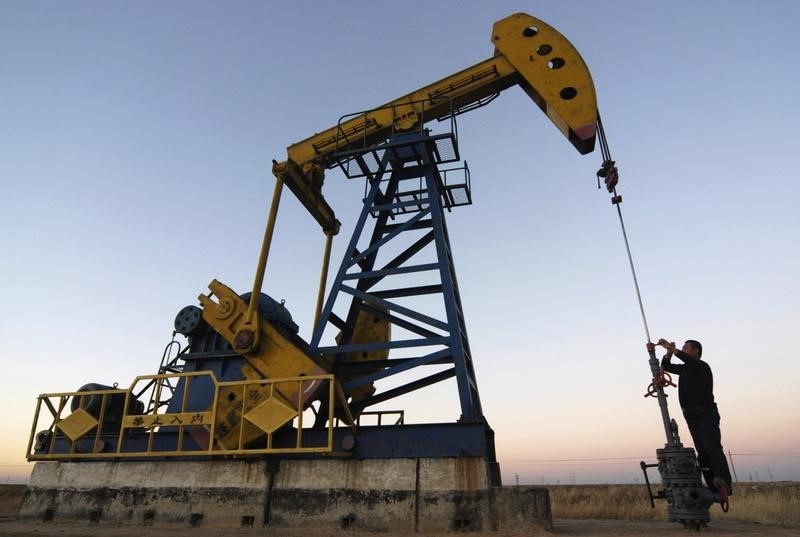Investing.com - Oil prices shook off earlier weakness to trade higher on Monday, after OPEC said a global glut has been virtually eliminated thanks in part to ongoing OPEC-led supply cuts and fast-rising global demand.
OPEC said in its monthly report published earlier that oil inventories in developed nations in March fell to 9 million barrels above the five-year average. That's down from 340 million barrels above the average in January 2017.
"The oil market was underpinned in April by renewed geopolitical issues, tightening product inventories and robust global demand," OPEC said in the report.
As well as OPEC's voluntary cuts, a plunge in Venezuelan oil output due to economic crisis and the United States' departure from a nuclear deal with OPEC member Iran have supported prices.
OPEC signaled it was ready to step in should "geopolitical developments" impact supply.
Brent crude futures, the global benchmark, tacked on 31 cents, or 0.4%, to $77.44 a barrel by 8:50AM ET (1250GMT). It fell to as low as $76.56 earlier.
Meanwhile, New York-traded WTI crude futures inched up 10 cents to $70.81 a barrel, after hitting an intraday low of $70.28.
Oil was on the backfoot earlier as a rise in U.S. drilling for new production dampened sentiment.
U.S. drillers added 10 oil rigs in the week to May 11, bringing the total count to 844, the highest number since March 2015, General Electric (NYSE:GE)'s Baker Hughes energy services firm said in its closely followed report on Friday.
That was the sixth consecutive weekly increase in the rig count, underscoring worries about rising U.S. output.
The relentless increase in U.S. production marked one of the few factors tamping back crude in an otherwise bullish environment in recent weeks.
WTI and Brent last week reached their highest since November 2014 at $71.89 and $78.00 per barrel respectively, after U.S. President Donald Trump walked away from an international nuclear deal with Iran and reimposed “the highest level of economic sanctions” against the country.
Some analysts have said the reinstatement of sanctions could lead to tighter global oil supplies as they make it more difficult for Iran to export oil.
Iran, which is a major Middle East oil producer and member of the Organization of the Petroleum Exporting Countries (OPEC), resumed its role as a major oil exporter in January 2016 when international sanctions against Tehran were lifted in return for curbs on Iran's nuclear program.
